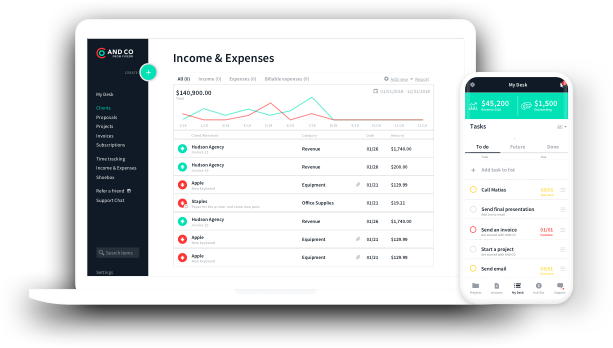Anywhere Workers
There’s a new generation of workers who won’t be tied to any one place. They can’t be restricted by the confines of an office, or bound by the standard 9-5. The future of work is anywhere.
Read more about this growing trend in our studyThe anywhere office
Telecommuting is no longer just self-led. More than 23% of remote workers we surveyed said their employer’s organization is fully distributed.
Businesses big and small are jumping on the ‘flexible work’ bandwagon and recognizing the value of sourcing quality workers from anywhere. Companies like Invision, Stack Overflow, Toptal, and Zapier boast fully remote workforces, with many other organizations starting to realize the value of allowing workers to ‘telecommute’ as necessary.

55% of respondents were fully remote and 43% are partially remote.

I feel like remote work is a baby concept, and the markets haven't realized the huge swaths of people moving that direction.
The new nomads
Those who’ve worked remotely for under a year are more likely to have gone remote in order to combine work & travel (11% vs 6.5% of those who’ve worked remotely for 7yrs+).
Combining work and travel is certainly a lifestyle trend that’s increasing in popularity, with new remote workers also more likely to be generally working from a foreign country. Interestingly, women were slightly more likely to have gone remote so they could ‘live the nomad lifestyle’ (11% vs 8% male).
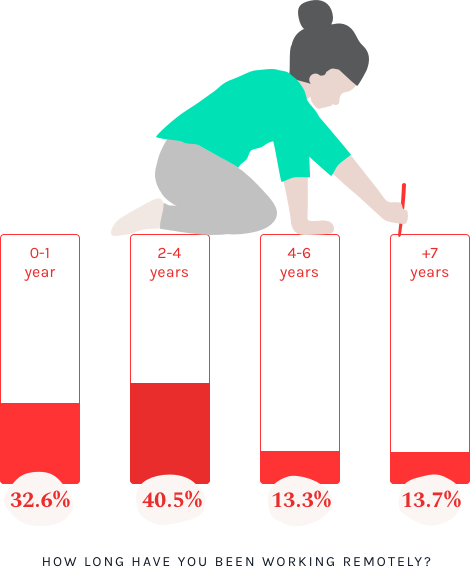
Slack is the new office
As the need to visit (or even have) a physical office reduces, reliance on tools to keep in touch increases.
44% of respondents claimed real-time communication tools are most vital for helping them stay connected.
Engineers were most likely to cite real-time communication tools like Slack as most critical, while marketing pros were more likely to choose video chat services as their top tool.

Remotes get pay raises too
Experience pays when you’re remote just as it would for any worker; the longer you work remotely, the more likely you are to be bringing in the Benjamins.
While 7% of workers who’ve been remote for under a year earn over 100k, this number jumps to 18% for those who’ve worked remotely for 7 years or more. US-based remote workers were more likely to earn six figures than international remote workers (14% vs 8%).
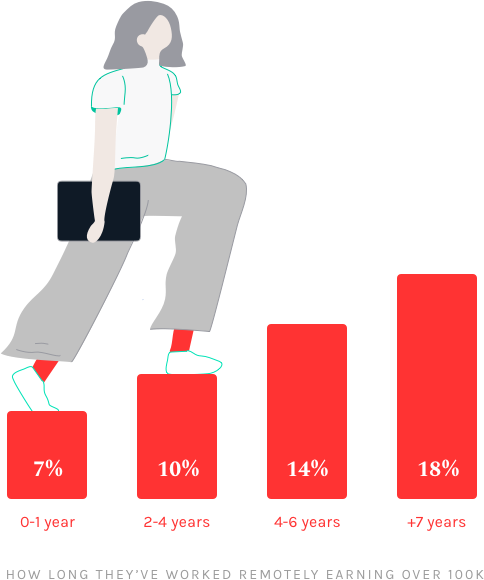
The gender gap has no borders
There’s a remote work pay gap: Men are more likely to earn six figures than women (13% vs. 8%).
This is partly to do with differences in the industries that men and women are more likely to work in.
Men are much more likely to work in the top earning profession, Engineering ( 16.45% vs just 1.6% female), while women are more likely to work in Marketing / PR (18.6% vs 11.62% male).
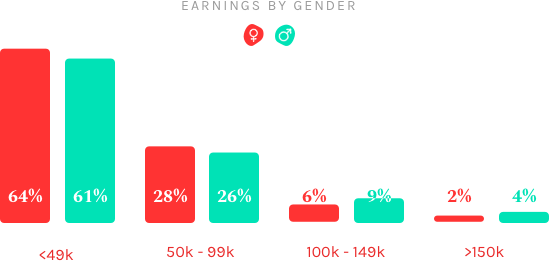

The cash is in the code
Engineers outearn other professions, with 19% earning $100,000 per year or more as a remote worker.
11% of Marketing pros and 8% of Creatives earn over $100k. Engineers were also more likely to say they went remote for a specific opportunity (10% vs. the 6% average).
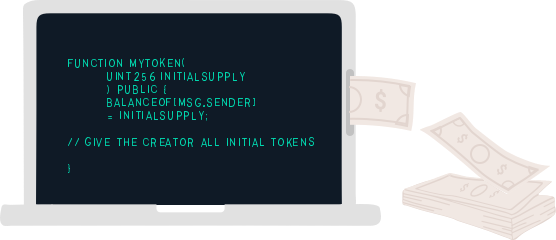
Income by profession

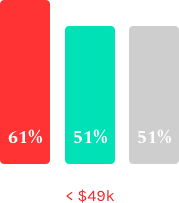
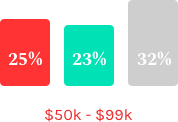



Too close to home
A third of remote workers say their top productivity blocker is having trouble shutting down at the end of a work day.
Engineers were least likely to cite “overwork” as a detriment to their productivity (29%) and most likely to cite inefficient meetings as a top blocker (23% vs. 17% average).
Self-motivated: Fewer than 7% cited not having a manager present as a top productivity-blocker.

Work and wander
The vast majority of remote workers chose this life for the freedom and flexibility, although this means different things to different people.
About 9% of respondents chose to go remote so they could live the nomad life. Marketing pros were most likely to cite the desire to travel more as a reason for becoming a remote worker (11%), and Creatives were most likely to cite freedom and the flexibility to work from wherever they choose (65%).
Engineers were most likely to say they went remote to pursue a unique opportunity (10% vs. the 6% average), and also more likely to cite convenience as the number one benefit.

One is a lonely number
30% of respondents said a lack of community challenges their remote happiness most.
Newbies (those who’ve been remote for under a year) were more likely to be experiencing loneliness (33%). Those who’d worked remotely for over 7 years seemed to have overcome feeling left out, but were more likely to overwork themself (33%). Creatives were more likely to cite lack of career advancement opportunities as a challenge (25% vs. 22% of engineers and 20% of marketers).


The only downside to working remotely can be the lack of human connection... Between all the project management and Slack messages, how can we make more valuable connections with our teammates and empower smart decisions TOGETHER?

The global citizens are here
24% of respondents describe themselves as digital nomads; 17% of those travel to 5+ countries a year.
Companies are becoming more global alongside this globalized workforce: 39.3% of remote workers are employed by global companies.
Remote work knows no borders: Just over half (57%) of respondents came from the US, but others were spread across Kenya, Myanmar, Slovakia, Australia, India, The Philippines, Venezuela, Indonesia, Colombia, Romania, Dominican Republic, Canada, and many, many more countries.

The trials of travel
Working while roaming isn’t always easy; perhaps that’s why the large majority (83%) of workers still generally work from their home country.
As more and more workers go remote, there are new challenges created for the global workforce. 1-in-5 remote workers blame time zone discrepancies for productivity troubles, and many cite problems with infrastructure not currently being up to scratch.
47% of remote workers believe there’s whitespace for more tools to help them with managing their work.

Remote time makes the heart grow fonder
The longer you work remotely, the more you love it.
Those who’ve worked remotely for 7+ years were far more likely to intend on working remotely forever than those who are freshly remote (0-1yrs). Respondents who’ve worked remotely for under a year are more likely (9%) to find it difficult to stay motivated without a boss looking over their shoulder than long-term remotes (4%).

Forever anywhere
Remote working is gaining popularity and it’s here to stay. 73% of remote workers are new to the game, having gone remote in the last 4 years.
Nearly 80% of respondents want to work remotely as long as possible; only 4% are doing so on a temporary basis.
Creatives and Marketing professionals were more likely to say they wanted to work remotely indefinitely (80% vs. 76% of engineers), while Engineers were more likely to consider going back to the office.

All the results
We’ve given you a snapshot of the most interesting insights from the survey in this report, but the detail-oriented amongst you may prefer to access all the details of the data - which you can do right here. Take a look.
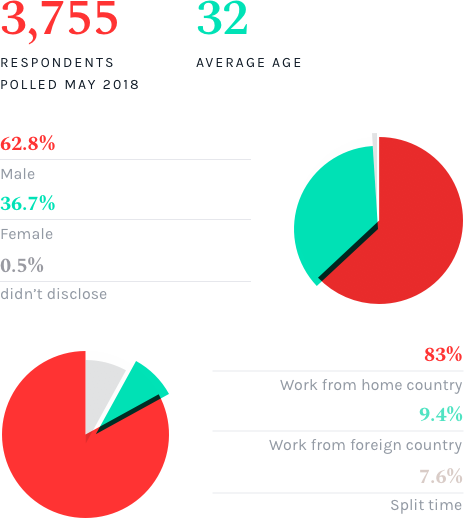
2017 Income breakdown
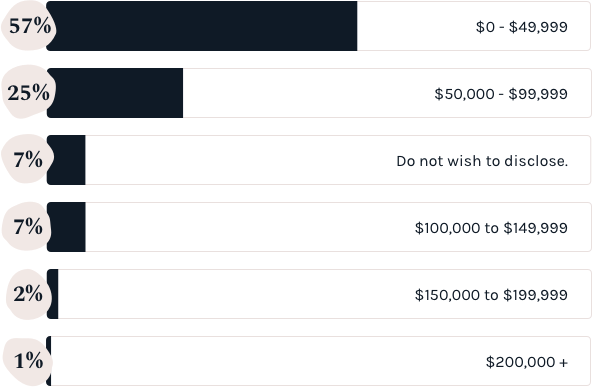
Are you a remote worker (full- or part-time)?
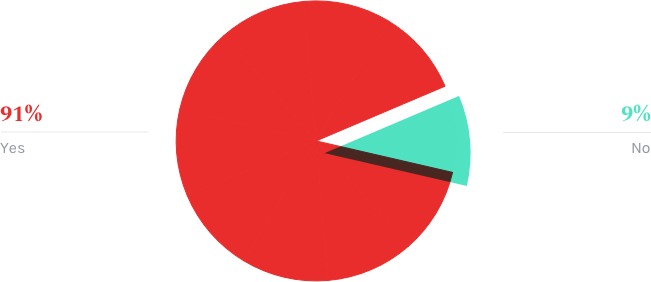
Which of the following best describes you?
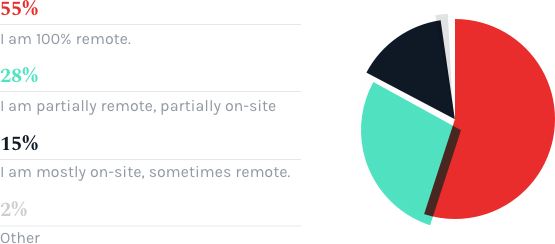
What is your current employment status?
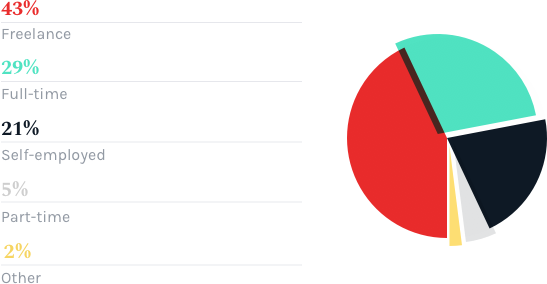
What is your specific area of focus?
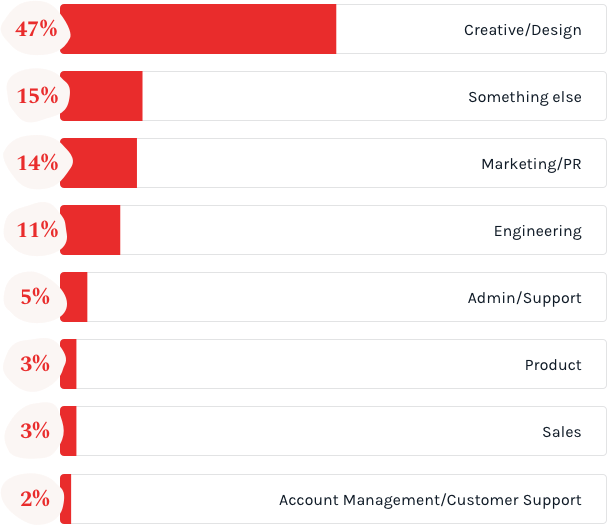
Why did you become a remote worker?
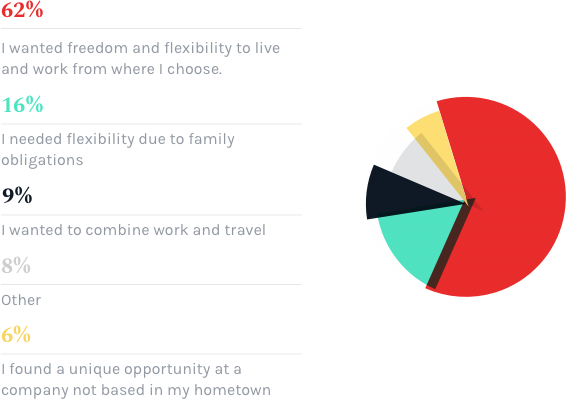
How long have you been working remotely?
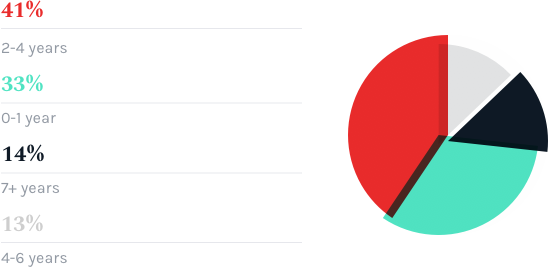
How long do you intend on being a remote worker?
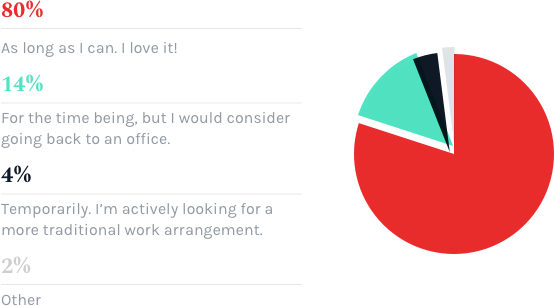
How do you feel most people perceive the lifestyle of being a remote worker?
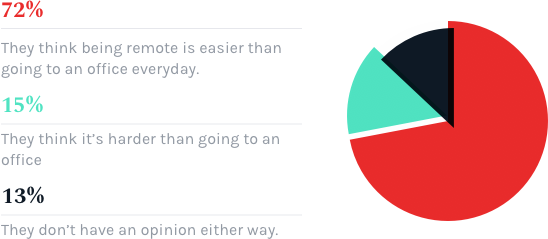
Where do you generally work from?
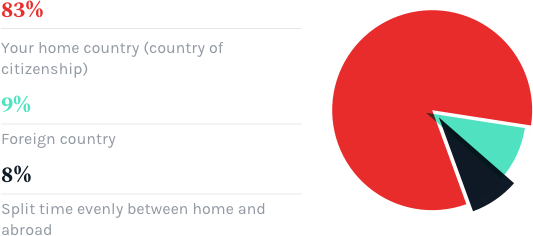
Do you typically travel around while you work (AKA live a "nomadic" lifestyle)?

If you answered "yes" to the last question, how many countries do you typically visit in a year?
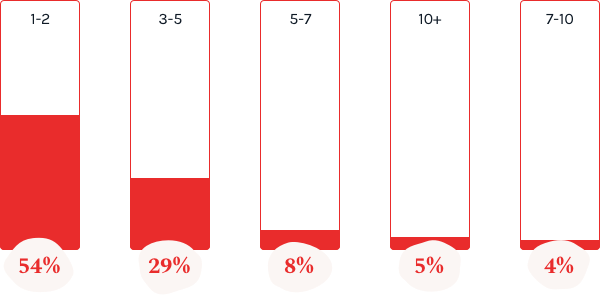
Is your current client/employer a global company (employees in multiple countries)?
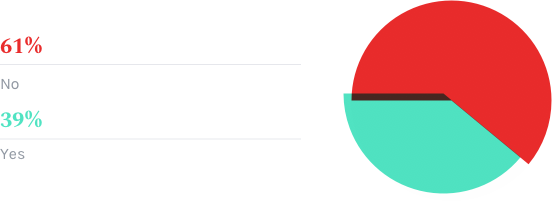
Which is most accurate across your client/employer's organization overall?
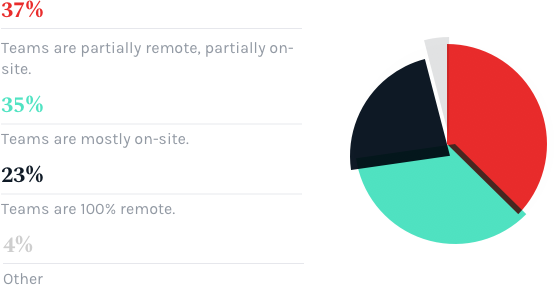
Which tools are most vital to you when it comes to staying connected with your distributed team?
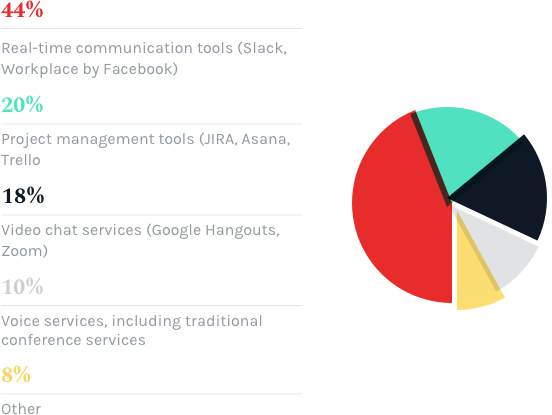
Do you think there's a whitespace in the market when it comes to tools and technologies available to meet the unique challenges of remote workers?
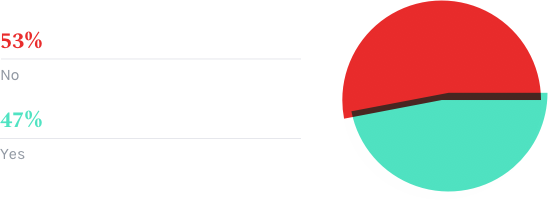
What is the No. 1 challenge when it comes to your productivity as a remote worker?
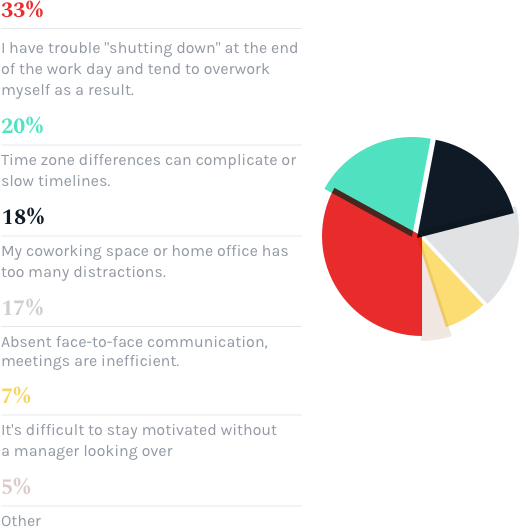
What is the No. 1 challenge when it comes to your happiness as a remote worker?
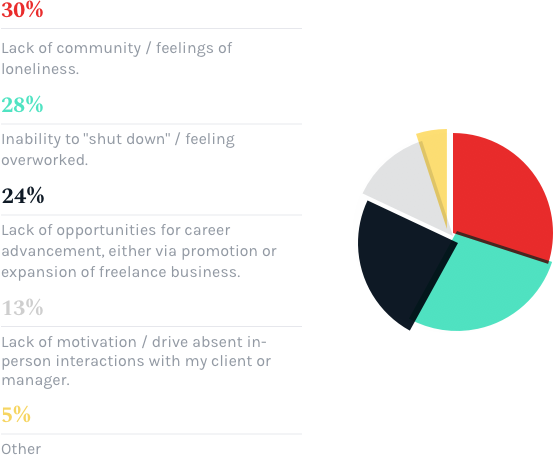
In your opinion, what’s the No. 1 benefit of the remote work lifestyle?
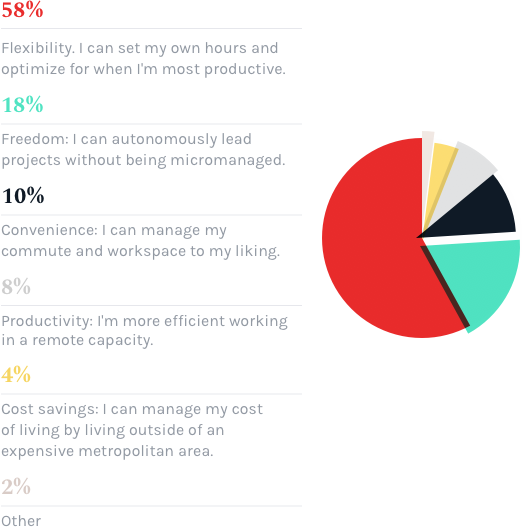
On a scale of 0 to 10 (10 being most difficult), how difficult is it for you to meet business contacts and collaborators as a remote worker?

What was your total income in 2017?
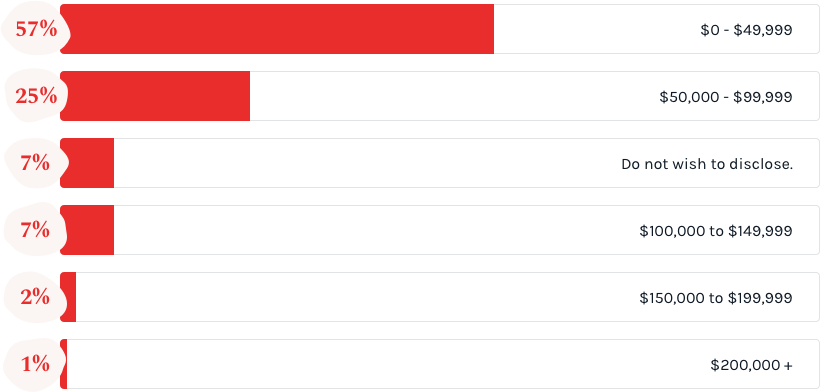
Freelancing software that saves you time and gets you paid fast!
Invoicing, Contracts, Proposals, Expense Tracking, Time Tracking and Task Management. AND CO helps you save time, so you can focus on the work you love.
GET STARTED (IT’S FREE)